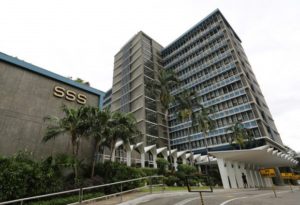MANILA, Philippines — Personalities in the running to become the Philippines’ next chief executive in mid-2022 – a time crucial for the economy to recover from its pandemic-induced slump and ease socioeconomic scarring – have been “uninspiring” so far for London-based think tank Capital Economics.
In a report on Monday, Capital Economics senior Asia economist Gareth Leather and chief Asia economist Mark Williams said the list of presidential hopefuls for the May 9 national elections “bodes poorly for the future” of the Philippines.
“Ferdinand Marcos Jr., the son of the late dictator, is currently well ahead in the polls, but faces charges of tax evasion, which could see him disqualified. He will be joined in the race by a host of other candidates, including a retired actor (Isko Moreno) and a former boxing world champion (Manny Pacquiao),” Capital Economics said.
“Name recognition goes a long way in Philippine politics, which explains why three of the last four presidents have been actors and the children of former presidents,” it noted.
Capital Economics was referring to former president Joseph Estrada, who had been a popular action star during his youth, as well as Gloria Macapagal-Arroyo and Benigno S. Aquino III, who both had former presidents as parents – Diosdado Macapagal for the former and Corazon Aquino for the latter.
“But name recognition doesn’t correlate with competence. A lack of policy-making experience in leaders (plus high levels of corruption) has contributed to the economy’s poor performance over recent decades,” Capital Economics said.
While Capital Economics did not mention them, also in the running to become the next Philippine president were Vice President Leni Robredo, Senator Ping Lacson, Ernie Abella, Gerald Arcega, Leody de Guzman, Norberto Gonzales, Faisal Mangondato, and Jose Montemayor Jr.
Capital Economics said the elections in the Philippines, India, and South Korea this year were expected to “play a role in setting fiscal and structural reform priorities.”
Finance Secretary Carlos Dominguez III last year said President Rodrigo Duterte’s successor should address the following: the country’s ballooning debt, high global inflation, wider income inequality locally and globally, and climate change.


